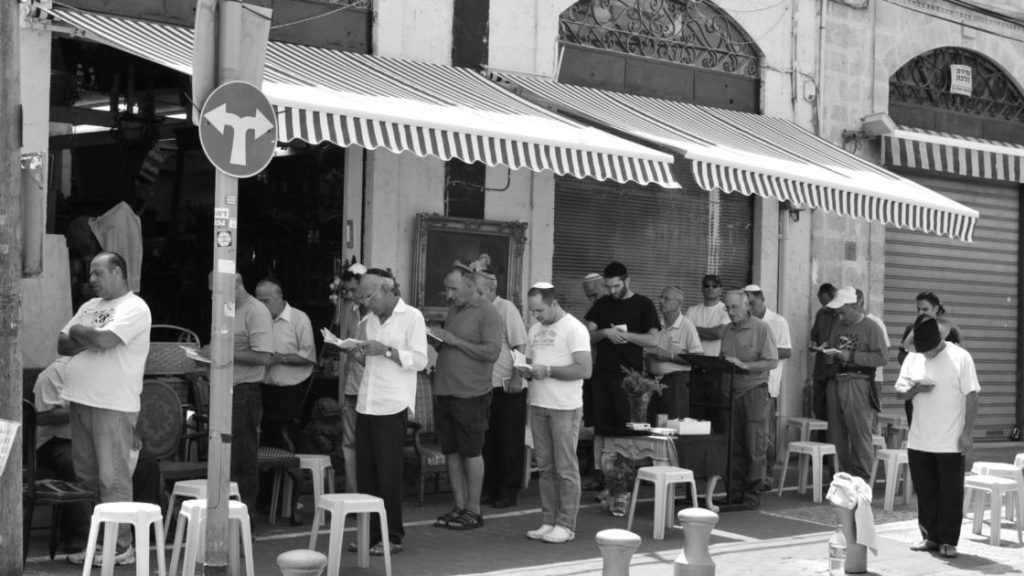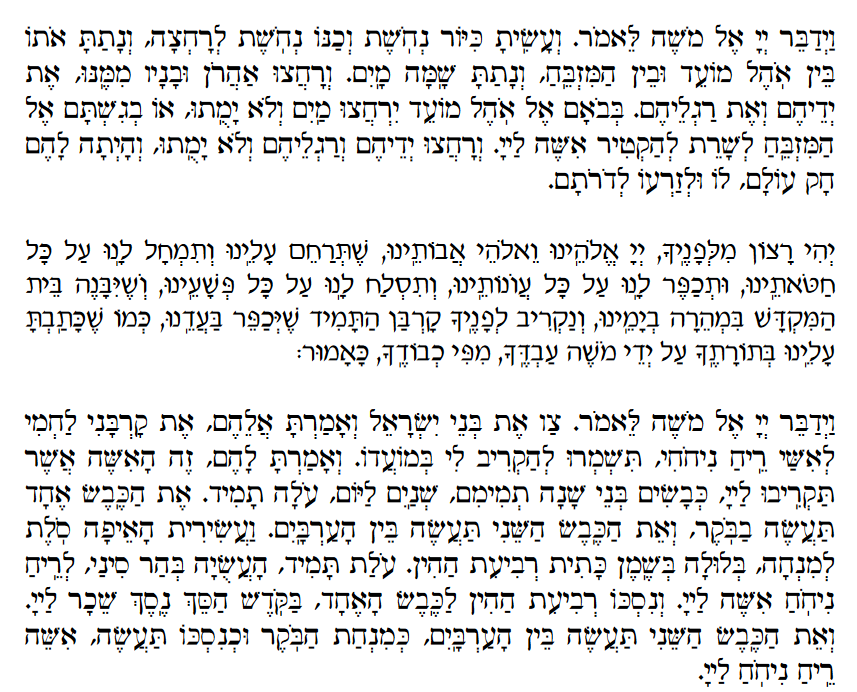The Mincha prayer is the second prayer of the day, and its time begins half an hour after midday and lasts until the evening. While the Shacharit (morning) and Maariv (evening) prayers occur during the transitions from night to day at sunrise and from day to night at sunset, the Mincha prayer is recited during the routine time of the day when we are busy and occupied with daily activities. This prayer is short in its basic structure and does not include the Shema recitation like the other two prayers. At its center stands the Amidah prayer.

The Mincha prayer has ancient origins, rooted in the practices of the Patriarchs. According to tradition, it was Isaac who instituted Mincha, as recorded in the Talmud (Berachot 26b). Over centuries, Mincha evolved, becoming a fixed part of the daily prayer routine in Judaism. Its name, Mincha, literally means “gift” or “offering,” reflecting its historical connection to the afternoon sacrifices in the Holy Temple.
Meaning and Significance
As the day transitions from morning to evening, Mincha represents a moment of introspection and gratitude. It serves as a reminder to pause and acknowledge God’s presence in our daily lives. This prayer stands as a testament to the discipline and dedication required to maintain a regular prayer practice, even in the midst of a busy day.
Structure of the Mincha Prayer
Mincha is concise yet profound, consisting of several key components:
- Ashrei (Psalm 145): This psalm of praise opens the Mincha service, setting a tone of gratitude and reverence.
- Amidah (The Standing Prayer): The centerpiece of Mincha, the Amidah, consists of 19 blessings, including requests for wisdom, forgiveness, and peace.
- Tachanun (Supplications): On weekdays, the Amidah is followed by Tachanun, a series of supplications seeking God’s mercy and forgiveness.
- Aleinu (Concluding Prayer): The service concludes with Aleinu, a prayer acknowledging God’s sovereignty and expressing hope for universal recognition of His kingship.
Different Jewish traditions (Ashkenazi, Sephardi, etc.) may have slight variations in the Mincha service, but the core components remain consistent.
Time of Day for Mincha
Mincha is recited in the afternoon, with specific times outlined in Jewish law. The earliest time for Mincha is half an hour after midday (known as Mincha Gedola), while the preferred time is in the late afternoon, closer to sunset (known as Mincha Ketana). This flexibility allows for accommodation of different schedules, yet it is essential to complete Mincha before sunset.

Conclusion
The Mincha prayer holds a special significance in Jewish daily practice, as it is timed during our busiest times of the day and it might be forgotten from time to time as a result. Mincha can be prayed individually or in a group (which is preferred). Do you pray Mincha daily?

